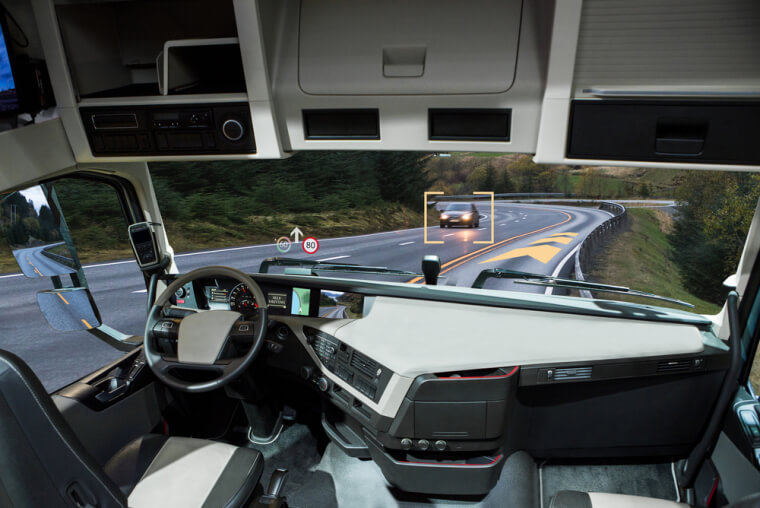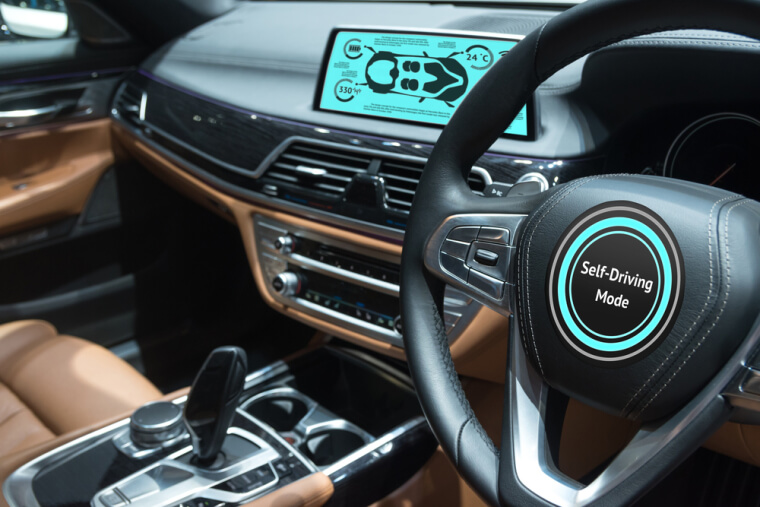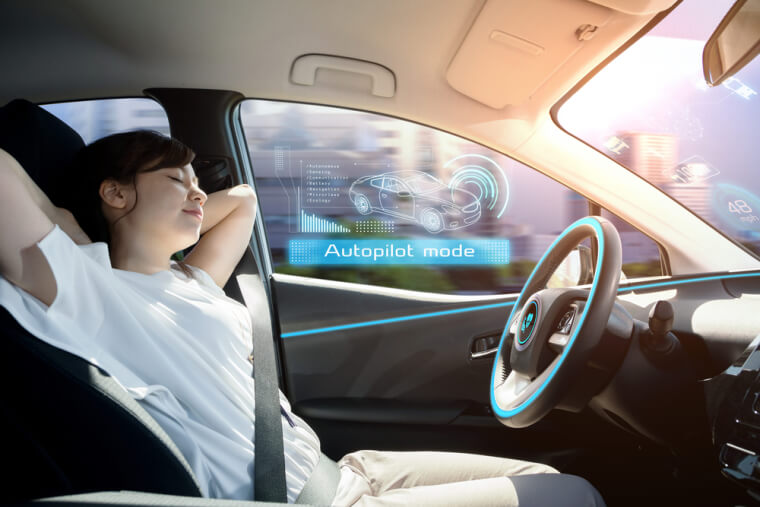1. How Do Self-Driving Cars Actually Work?
The theory behind autonomous vehicles is actually quite simple, and engineers have been trying to build prototypes for the last few decades. Essentially, you outfit a car with enough cameras to track every object around it and then have the car react accordingly to these objects. The really clever stuff comes in teaching the in-car computer the rules of the road so that it can actually take a passenger from A to B.
Now, this is a highly simplistic overview of the engineering and tech behind a prototype that's fit for purpose and it doesn't address a number of crucial issues. You see, driving a car is one of the more complex activities that a human will regularly perform and, aside from the rules of the road, we will typically have to navigate a whole range of issues, such as eye contact with other drivers and reacting to adverse weather conditions. This is where self-driving tech has struggled.
In fact, even the relatively simple task of establishing and reacting to objects around the car isn't solved easily. Training the AI system within a car to be able to handle every type of situation takes millions of miles of driving data, but most of the data collected so far is based on simulation data, rather than from the real world. As you can see, even the seemingly simple challenges aren't solved easily, which gives you an idea of why self-driving cars aren't parked outside your house just yet.
Now, this is a highly simplistic overview of the engineering and tech behind a prototype that's fit for purpose and it doesn't address a number of crucial issues. You see, driving a car is one of the more complex activities that a human will regularly perform and, aside from the rules of the road, we will typically have to navigate a whole range of issues, such as eye contact with other drivers and reacting to adverse weather conditions. This is where self-driving tech has struggled.
In fact, even the relatively simple task of establishing and reacting to objects around the car isn't solved easily. Training the AI system within a car to be able to handle every type of situation takes millions of miles of driving data, but most of the data collected so far is based on simulation data, rather than from the real world. As you can see, even the seemingly simple challenges aren't solved easily, which gives you an idea of why self-driving cars aren't parked outside your house just yet.
2. What Might A World With Self-Driving Cars Look Like?
Even though it's taking companies longer than they would have liked or anticipated to get self-driving cars into the hands of the public, they continue to invest considerable resources into production, because these vehicles will change the world as we know it - making the likes of Tesla and Toyota plenty of money in the process.
For the average commuter who climbs reluctantly into their car each morning, or sits yawning in traffic jams at the end of a long day, the possibility of being able to doze off whilst reaching their destination safely is transformative. Or for the millions of Americans who can't get a driver's license for one reason or another, who would be able to get to work, to a doctor's appointment, or simply the grocery store if self-driving cars were available. But it's not just private car owners whose lives will transform, as taxi services will look to replace their drivers with, well, a computer. It's not beyond the realm of possibility that in a few years you'll be leaving a 5-star review for your automated Uber driver.
This change shouldn't be expected overnight, however. Recent polls show that the majority of Americans don't want to be driven to work by a self-driving car, although this might change once they are more commonplace and suspicion towards the vehicles has faded.
For the average commuter who climbs reluctantly into their car each morning, or sits yawning in traffic jams at the end of a long day, the possibility of being able to doze off whilst reaching their destination safely is transformative. Or for the millions of Americans who can't get a driver's license for one reason or another, who would be able to get to work, to a doctor's appointment, or simply the grocery store if self-driving cars were available. But it's not just private car owners whose lives will transform, as taxi services will look to replace their drivers with, well, a computer. It's not beyond the realm of possibility that in a few years you'll be leaving a 5-star review for your automated Uber driver.
This change shouldn't be expected overnight, however. Recent polls show that the majority of Americans don't want to be driven to work by a self-driving car, although this might change once they are more commonplace and suspicion towards the vehicles has faded.
3. Will Self-Driving Cars Be Good For The Environment?
One of the major issues of the day is climate change, and more specifically, how are our day-to-day lives negatively impacting the environment? Creators of self-driving cars claim that their introduction into the market could help reduce carbon emissions because, ultimately, fewer people will need to own a car. There is also an argument to suggest that the way humans drive is less fuel-efficient - accelerating and breaking too hard, etc.
Unfortunately, this claim seems unsubstantiated, as research conducted so far has shown just a slight improvement in the driving style of computers, approximately 5%. Hardly a massive boost to the environment. Furthermore, the idea that people who swap ownership of a car in favor of a single-use self-driving option will take fewer car journeys is also untrue. One study that aimed to evaluate user behavior provided a family with unlimited access to a chauffeur a week. The result? The family took more car trips. Until self-driving cars are an established part of our lives it's difficult to make predictions on habits or how they might affect the world we inhabit.
Unfortunately, this claim seems unsubstantiated, as research conducted so far has shown just a slight improvement in the driving style of computers, approximately 5%. Hardly a massive boost to the environment. Furthermore, the idea that people who swap ownership of a car in favor of a single-use self-driving option will take fewer car journeys is also untrue. One study that aimed to evaluate user behavior provided a family with unlimited access to a chauffeur a week. The result? The family took more car trips. Until self-driving cars are an established part of our lives it's difficult to make predictions on habits or how they might affect the world we inhabit.



